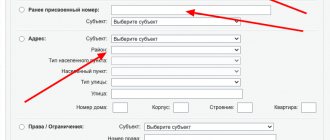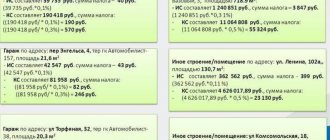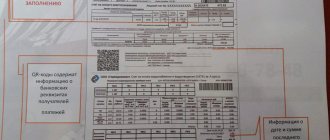The sale of debtors' property is one of the main tasks of a bailiff. He must sell the property in question to satisfy the needs of the claimant. But before selling the property in question, it must be confiscated, properly registered and auctioned. Without this, it will be impossible to satisfy the interests of the claimant. Violation of the procedure is a valid reason to challenge it. Therefore, it will be useful to familiarize yourself with the legislative norms, enforcement proceedings and how representatives of the FSSP work with property that has been seized.
Sale of debtors' property by bailiffs
The property of debtors is the basis from which funds are taken to cover debts. But in most cases it will not be possible to simply give away property. The bailiff undertakes to seize and sell the property that the debtor has, having previously begun enforcement proceedings. Enforcement proceedings are regulated by the federal law of the same name.
According to the regulations of enforcement proceedings, before the sale of seized property begins, an inventory is taken of it. Also, property may be seized for safekeeping. The debtor has little time to pay off his debts. If the person does not do this, bidding will begin. If the debt is less than 30 thousand rubles, the defendant can sell his property himself without a bailiff. Representatives of the FSSP can intervene only if the debtor did not bother to engage in the procedure in question on his own.
Participation in auctions of seized property
The sale of debtors' property must be carried out by bailiffs. In order to implement it, auctions are used. Anyone can take part in these events. For everything to go legally, you need to follow the correct procedure. To begin with, representatives of the FSSP issue a decision on the valuation of the property. After the examination is completed, a report is drawn up. It is on the basis of the document in question that the value of the property for sale is determined.
After issuing the decree, the bailiff has 20 days to prepare a document transferring the defendant’s property for sale. After drawing up the resolution, the document must be submitted to a specialized organization. The FSSP bailiff has 10 days to do this. When the transfer is completed, you need to draw up a transfer and acceptance certificate. It must be remembered that bailiffs must sell the debtors' property at a price that is higher than that indicated in the valuation act or identical to it.
Sale through auction
Most often, such confiscated property is sold through open auction. But the bailiffs themselves claim that this method is not the best, and all because there are many debtors, that is, lots, but there are no people willing to buy them. In order to sell property in this way, an appraisal must be carried out. This is done by both state-owned companies and private individuals who have a license for such actions. The period in which you need to invest is 10 days.
Important! Responsible for the auction is Rosimushchestvo. It is the visa of this government agency that is decisive. The bailiff provides here a package of documents, including an expert’s assessment.
Of course, the price of a serviceable car will be significantly lower than the market price; there will be people willing to buy it at that price. But the problem is that very often potential buyers simply do not know about them. Organizers of auctions are required to report such events 1 month before their start, but the law does not have a clear procedure or instructions to which media the information should be submitted. As a result, many potential buyers are left out of business. However, trading data is distributed in very narrow circles.
In total, a car can be at auction for about 60 days. After 30 days, if no one is interested in it, the price drops by 2 times. If a buyer is not found within the specified period, then the vehicle may even be returned to the debtor.
Value of the pledged property
Bailiffs must not only seize the property of debtors, but also correctly evaluate it before it survives collection. True, the assessment is not carried out by the bailiff himself. This should only be done by a licensed organization, which will prepare a report based on its activities.
A company that carries out an assessment of property owned by the debtor must pay attention to the implementation of several sets of manipulations:
- Information is collected about the object being assessed. Once the data is collected, it needs to be analyzed.
- To determine the value of assets, only optimal methods should be used.
- The results should be summarized by developing a detailed report.
After the seizure of the debtor's property has been carried out, the bailiff has a month to prepare for the auction. Seizure may be imposed on cultural property, and even banknotes that have collectible value.
Sometimes FSSP bailiffs themselves estimate at what price the property will be sold. The reference point in this case is the market price. Moreover, it is often the minimum threshold in order to sell the property faster. But the assessment results can be challenged. This is given 10 days from the moment the person disputing the price for sale receives information about it.
Algorithm for selling at auction
The sale of cars is most often carried out through auctions, which, in turn, take place in several stages.
Terms of bidding
As already mentioned, an assessment is carried out where the price of the lot cannot be lower than the estimated price. An auction is called open if there are at least two people willing to buy a car. To do this, participants should submit applications by filling out a special form.
It happens that the auction is defined as failed, this is possible if at least one of the following conditions is met:
- there is not a single buyer at the auction or only one. That is, there can be no talk of competition;
- participants refuse to raise the starting price - the sale reaches a dead end;
- the one who won the auction did not contribute the amount that was determined during the auction within 5 days, as required by law.
If the auction is declared invalid, the bailiffs are obliged to organize a repeat auction. The price of the lot is reduced by at least 15%.
The auction is considered valid if the winner has paid the required amount. Within a few days, a purchase and sale agreement is signed with him, which subsequently becomes the basis for registration of ownership. The maximum period for which you need to pay the entire amount is 10 days.
Important! The results of the auction must be published in the media, along with information about the person who won the auction.
The procedure for the sale of seized property
Seizing the debtor's property is one of the procedures that allows you to protect the property in question until the moment when the bailiffs can sell it and cover the debt . To sell property under arrest, an auction is used, which is organized by the Federal Bailiff Service. The sale of property is often open, so anyone can buy it. The auction is valid for two months. The countdown begins from the moment the organizer received the asset for its sale.
You can find out that a seizure has occurred and the sale of property has begun from several sources. The easiest way to get the necessary information is on the Internet. For example, if you go to the bailiffs website and visit the section called “Services”. Data on the start of trading is published 30 days before the start of the trading itself. In addition to the fact that the auction will begin, the message contains information about important details of the event in question. In particular, the date of the auction, the place where the sale will take place, the form of the sale. It also indicates whether there are encumbrances on the assets, in what order the procedure is carried out, what the initial price is and a link that will transfer to the owner.
An important point is that the defendant has the opportunity to attend the auction when the property is sold, but he is prohibited from taking part in it. The claimant can also attend the action in question. Information about all participants is entered into the tender protocol. Sometimes it happens that it is not possible to sell property after it has been seized. Then it is transferred to the plaintiff at a price that is lower than that set during the assessment. The cost is reduced by 25%.
To participate, a deposit is made, the amount of which is indicated in the document, notice of the auction. But the size of the deposit is regulated, and it should not be more than 5% of the value from which the auction is conducted. If the applicant for the property was unable to purchase it, the deposit will be returned.
Trading of debtors' property is available only to persons who have access to State Services. But it is best to apply for participation in the auction, where things are sold, by contacting the bailiff service. But if only one person submitted an application or no one showed up for the auction, it will be declared unsuccessful. Exactly the same consequences will occur if no one beats the original price. Then the auction will be rescheduled, but this time reducing the original cost by 15%. But even if the re-event did not take place and the property could not be sold, it is transferred to the claimant at a reduced price.
You can win at an auction where property is sold (sold) if your price for the property is the highest of the options offered. If the sale at a public auction was in your favor, the winner and the organization sign the protocol (this is done right on the spot). The full amount announced at the auction must be paid within five days after the amount in question was announced as part of the auction. But the deposit that was paid at the stage of registration of participation in the auction is calculated from the amount in question. Please note that missing the deadline for paying the principal amount means that the deposit will not be returned to you.
Having deposited all the money, the organization that organized the auction and the winner can conclude a purchase and sale transaction, and information about the transfer of ownership is added to the Unified Register, and the debtor closes his debt. But even this does not put an end to the procedure. The results of the auction may be subject to challenge within a year after the conclusion of the transaction. But only if the court declares the preliminary decision invalid. Claims may be filed by persons who were unable to become participants in the initial auction. For example, because the rules of the event were violated. The bailiff and persons interested in the results can also challenge the initial results.
An auction can be declared invalid only if the collection occurred under the following circumstances:
- The person was unreasonably excluded from trading;
- The sale took place at a price that does not correspond to the reality of the property that the debtor has;
- The sale violated the specified deadlines and the debtor will not receive the money;
- Information about the auction was published in an inappropriate publication;
- The sale continued, although the bailiff reported that the sale procedure was suspended (regardless of the circumstances).
The list under consideration does not end at the point indicated above, but these reasons are the most common.
Where do affordable cars come from?
People who take out a loan in the hope that they will be able to repay it on time, but this does not always happen. However, you lost your job, got sick, or something else happened and you have to give your car or other valuable property into the hands of the bank or bailiffs. Of course, for the borrower this is a real disaster, since he loses not only the property that was previously owned, but also the money that was already paid for the loan. But for those who want to buy a car at a discount, this is a real gift.
Important! Prices at auctions are not easily affordable; they are lower than the market average than at a car dealership.
The actual seizure of property, including vehicles, is a coercive measure. This procedure is carried out on the basis of a decision made during the meeting and is sent to the bailiffs. They are an executive body whose main task is to arrest or terminate the right of use.
If the borrower does not repay the debt within 5 days, his car is taken away. In this case, two witnesses must be present. The bailiff's procedure is as follows:
- seizure of the registration certificate;
- fixation of speedometer indicators;
- car sealing;
- an inventory of the equipment and defects, if any.
Next, the vehicle is sold after an assessment carried out by a specialized company. It can be sold using different methods, which we will discuss below.
And also, you should get to know in more detail such a participant in the process as the bailiff, because he is the seller. He is empowered to seize the debtor's property by court decision. The sale of seized property can occur immediately, without contacting other government agencies.
For buyers of such cars or trucks, purchasing seized property is very profitable, because only those vehicles that work properly and do not have significant defects are put up for auction.
Actions of the FSSP on the sale of collateral property
Collection of the debtor's property may not work through auction. The bailiff may not continue the collection, but transfer the property to the recoverer at a price that is 25% lower than the stated one. Then the claimant writes an application to the FSSP, indicating his consent or refusal. Five days are given for this.
If the person on whose initiative the seizure, collection and sale of property took place refuses the offer (does not respond), the debtor will receive the property and the sale will not take place. The bailiff draws up the relevant resolution and submits it to a senior officer for approval. When transferring property after foreclosure, it is imperative to draw up a deed.
You can get legal assistance regarding the sale of debtors' property by bailiffs on our website.









